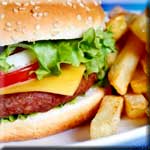Millions of people struggle with weight loss each year and most will be unsuccessful in their goal. With the New Year almost upon us, many will yet again make a well-intended resolution to drop weight gained during the past year and reach their ideal weight range. Making the decision to lose weight is an important first step, yet 95% of those with the desire to drop pounds will fail because they don’t have the appropriate tools to accomplish the task.
Making a Plan to Lose Weight
The reason most weight loss programs don’t succeed is because there is no firm plan in place that will deliver the desired results. Many people rely on fad diets that exclude different food groups or rely on pills or other unnatural supplements that only work in the short term. In order to permanently lose weight, you must have a viable and demonstrated methodology in place. This includes a reduced calorie, well-balanced meal plan, regular physical activity and a way to keep track of your progress.
Keeping a Food Diary Helps Many Achieve Weight Loss Goal
The best laid plan to lose weight can quickly become unraveled the first time you make an inevitable dietary stumble. It’s been shown that dieters are much more likely to stay with a dietary regimen when they keep a food journal to track their daily progress.
After years of working with overweight and obese patients, weight loss management specialist Dr. Christopher J. Mosunic from Greenwich Hospital in Connecticut has found that people keeping track of daily food consumption in a journal are considerably more likely to remain with their plan and keep weight off for good. He provides essential tips from his experience to achieve successful weight loss using a food journal.
Tip 1: Keep Your Journal Simple
One of the keys to maintaining a good food journal is to keep your entries simple. If it becomes a burden to record your daily details you are much less likely to keep it up for the long run. One of the biggest mistakes is to rely on complex internet-based programs that over analyze data and can take a half hour or more each day to maintain.
Try using a simple journal that you keep by hand. Record the date, time and food eaten with quantity before each meal. Also include a simple detail of physical activity for each day including the type of exercise and duration.
Tip 2: Be Thorough, Don’t Cheat
It’s important to be responsible for every item you eat, including each handful of chips or piece of chocolate. Every item adds up, as between meal snacks and unrecorded food binges can make up 30 to 50% of your daily caloric intake.
Tip 3: Share Your Food Journal
A food journal is not like a personal dairy. You want people to be able to take a look and see your progress. It should be an accurate reflection of your personal journey to achieve a very special goal, and you should be proud to share your accomplishments with family and friends.
After you have charted your food and fitness progress for 30 days, you will be able to quickly see the reasons for success or failure. If you are losing weight more or less than the recommended 1 to 2 pounds per week, you will need to adjust calories and physical activity up or down to compensate. Once you have made the resolution to lose weight, ensure your success by maintaining a daily food journal.



































